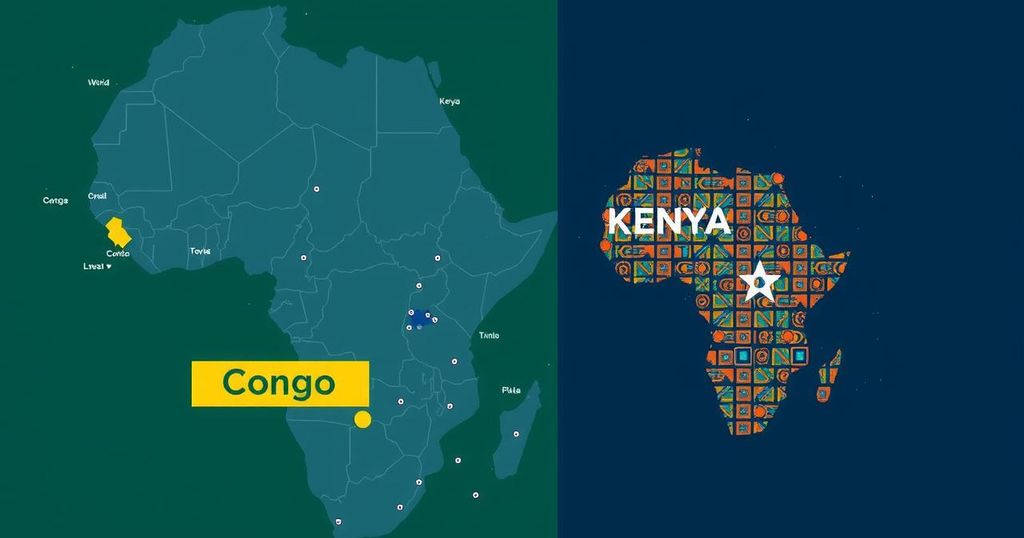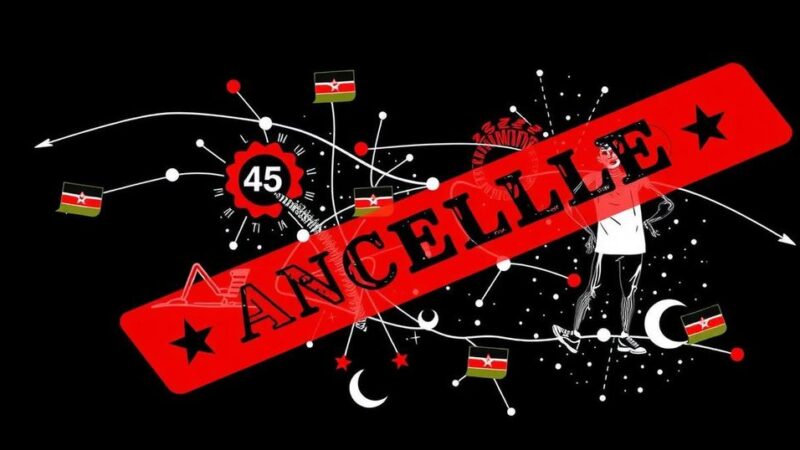The Africa Risk-Reward Index 2024 ranks the DRC and Kenya as the riskiest investment destinations in East Africa, citing political, social, and economic threats, with Rwanda as the safest. Kenya’s risk score increased to 6.06 while its reward score diminished. The DRC also saw declines in its scores amidst ongoing violence. Other countries like Mauritius are recognized for their investment security.
The Democratic Republic of Congo (DRC) and Kenya have been identified as the most hazardous investment environments in East Africa, primarily attributed to various political, social, and economic threats. The recently published Africa Risk-Reward Index 2024 by Control Risks and Oxford Economics Africa, which assesses country risk, reveals that the DRC received a risk score of 7.6 out of 10, while Kenya followed closely with a score of 6.06. Other countries in the region reported lower risk levels, with Uganda at 6.01 and Tanzania at 5.37. Conversely, Rwanda emerged as the safest investment environment in East Africa, boasting a risk score of 5.11. The risk assessments for the respective countries are grounded in analyses of both economic and political risks, measured on a scale from 1 to 10, where 10 signifies the utmost level of risk. The evaluation of potential rewards considers several factors, including medium-term economic growth forecasts, economic size, structure, and demographic conditions, with economic growth outlooks weighted most heavily due to their correlation with investment opportunities. In September 2024, the reward score for Kenya saw a slight decline to 5.25 from 5.33 the previous year, while its associated risk score worsened to 6.06 from 5.8, leading to an overall reduction of its risk-reward score by 0.34. Meanwhile, the DRC also faced a reduction in its reward score by 0.23 to 5.65 and an increase in its risk score to 7.6, resulting in a 0.3 drop in its overall score. In recent months, Kenya’s credit rating was downgraded by global rating agency S&P Global due to the withdrawal of the contentious Finance Bill 2024. This downgrade marks the third such reduction in the country’s creditworthiness by agencies including Fitch and Moody’s, which now project a gloomy revenue outlook against a backdrop of rising national debt. Protests against government policies have continued in Kenya, particularly in light of the Finance Bill 2024 situation, resulting in President William Ruto seeking to appease opposition members through Cabinet appointments. Concerns regarding tax changes, particularly on essential commodities in future budgets, remain prevalent as high inflation and currency depreciation threaten the economic stability of households. In terms of regional safety, Mauritius has emerged as the continent’s most secure investment destination, marking a risk score of 3.22, followed by Botswana, Namibia, and Morocco. Zimbabwe, on the other hand, has the highest risk score at 7.79, with Ethiopia and Nigeria close behind. Finally, the DRC continues to suffer from violence, particularly in its eastern regions, leading to significant humanitarian crises as millions are displaced and basic services are in dire need.
The Africa Risk-Reward Index serves as a vital tool for investors, highlighting the varying degrees of risk across sub-Saharan Africa based on a multitude of factors, particularly political stability and economic growth prospects. These rankings are crucial for international investors aiming to navigate the complexities of investment opportunities in various African nations. In East Africa specifically, the DRC’s enduring instability and Kenya’s troubling political climate have generated heightened caution among potential investors. The DRC has been plagued by a violent conflict involving armed groups like the M23, severely affecting local populations, while Kenya grapples with rising discontent due to government taxation proposals that contradict prior election promises.
The findings from the Africa Risk-Reward Index 2024 paint a concerning picture for potential investors in East Africa, particularly in the Democratic Republic of Congo and Kenya. Political unrest and economic instability are key contributors to the elevated risks associated with investments in these nations. Conversely, nations like Mauritius and Rwanda illustrate that investment opportunities still exist within Africa, albeit in regions characterized by relative safety and stability. In light of these insights, potential investors are urged to thoroughly evaluate risk factors and political climates of these countries before making investment decisions.
Original Source: www.theeastafrican.co.ke






